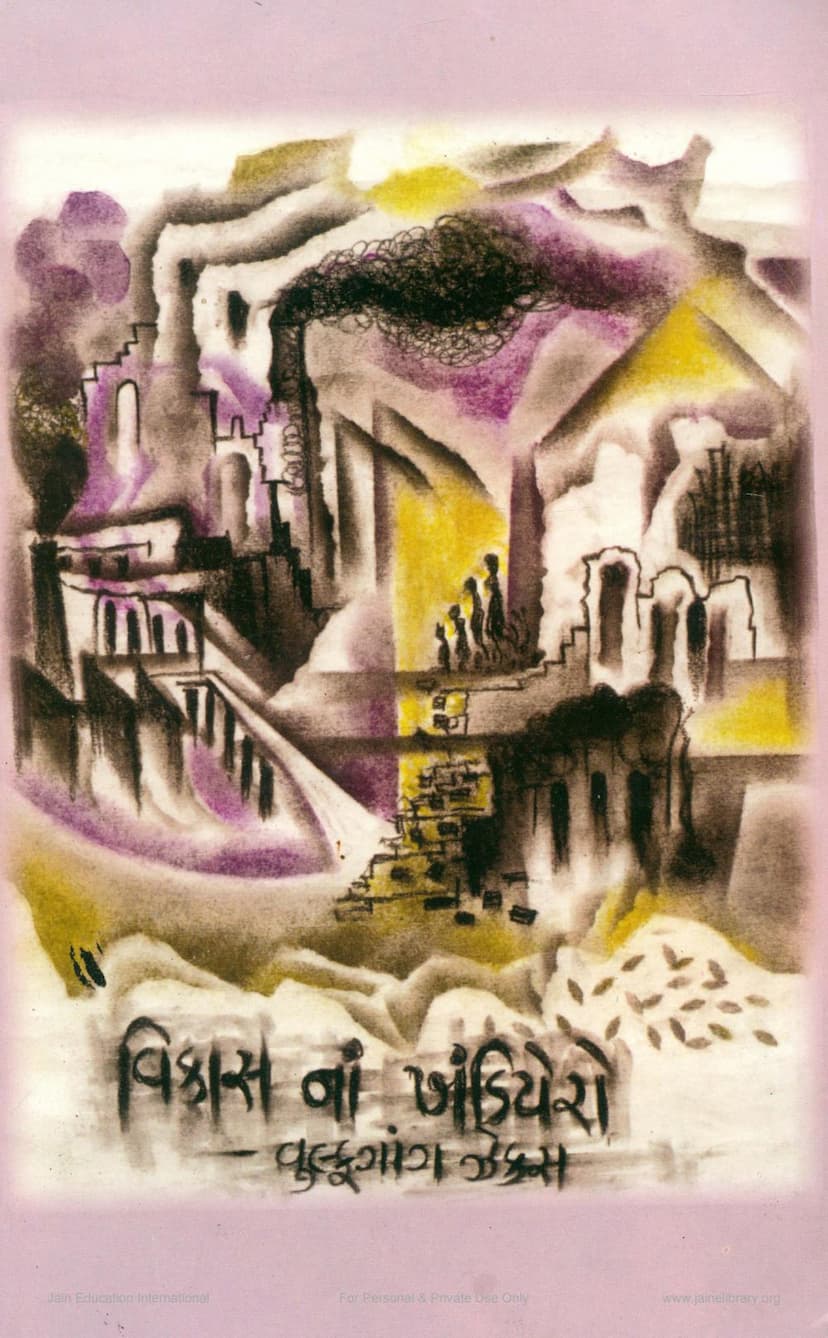Vikas Na Khandiyero
Added to library: September 2, 2025

Summary
Here's a comprehensive summary of the Jain text "Vikas na Khandiyero" (Ruins of Development) by Wolfgang Sachs, presented in English:
Book Title: Vikas na Khandiyero (વિકાસના ખંડિયેરો) Author: Wolfgang Sachs Gujarati Translator/Presenter: Kanti Shah Publisher: Yagna Prakashan
Core Argument: The book, translated into Gujarati by Kanti Shah, is a critical examination of the concept of "development" as it emerged and spread globally, particularly after World War II. Wolfgang Sachs, a German thinker, argues that the idea of "development" has become a hollow, almost religious dogma, and its era is ending. He posits that the pursuit of development, based on Western industrial and consumerist models, has led to significant problems and that the entire concept is now in "ruins."
Key Themes and Arguments:
-
The "Archaeology of the Development Idea": Sachs views the concept of development like an archaeological site. He believes it's crucial to excavate its origins and history to understand what lies beneath its seemingly glorious facade. He traces the idea's roots to post-World War II declarations, like President Truman's, which categorized much of the world as "underdeveloped" and in need of "development."
-
Development as a New Form of Imperialism: Sachs argues that the post-war "development" agenda, promoted by the US, was a clever way to establish a new form of global dominance, replacing overt colonialism. By encouraging nations to pursue economic growth based on Western models, the US could exert influence and create a global economic dependency, even while championing national liberation. Leaders like Nehru in India adopted this framework, prioritizing economic growth above other societal values.
-
Critique of "Poverty" as Defined by Income: The book challenges the dominant definition of poverty as solely based on per capita income. Sachs uses an anecdote from Mexico to illustrate how people in seemingly poor communities possess dignity, self-reliance, and strong community bonds, which are often overlooked by development metrics. He argues that defining poverty through income alone, and comparing it to Western standards, leads to a patronizing and simplistic view of diverse cultures, stripping them of their inherent values and traditions.
-
Technology as a Trojan Horse: Sachs critiques the unquestioning faith in technology as the sole driver of progress. He argues that modern technology is not neutral like a hammer; it comes with an entire accompanying civilization model and infrastructure. Introducing technology, like an electric mixer, isn't just about a simple tool; it necessitates a complex, often global, system of power grids, manufacturing, planning, and administration. This integrated system reshapes societies, making people dependent on it and fundamentally altering their worldview and values. Technology, he suggests, ultimately "uses" humans rather than being merely "used" by them.
-
The Suppression of Diversity: The dominant Western development model, Sachs contends, has a homogenizing effect, stifling cultural diversity. The push for Westernization is presented as a path to global unity, but it leads to the erosion of unique languages, customs, and ways of life. He contrasts this with the vision of figures like Mahatma Gandhi, who advocated for an Indian path rooted in its own traditions and village-based economies, rather than blindly imitating the West.
-
The Rise of the Market and the Decline of Social Values: The book criticizes how the global market economy has become paramount, overshadowing other societal values and relationships. This market logic has infiltrated even formerly self-sufficient and community-oriented societies, leading to the erosion of traditional bonds, the rise of consumerism, and a focus on individual economic gain over collective well-being.
-
The "End of Development" and the Shift to "Security": Sachs concludes that the era of "development" as envisioned by Truman is over. The Gulf War serves as a turning point, highlighting a widening technological and economic chasm between the Global North and South. The focus has shifted from fostering development in the Global South to ensuring the security of the Global North. The concerns are no longer about lifting the South up but about containing potential threats emanating from it.
-
Environmental Crisis and the Limits of Growth: The book acknowledges the growing awareness of environmental crises (climate change, pollution, ozone depletion) and the realization that unchecked "growth" is unsustainable. This environmental concern is increasingly framed within the context of "security" for the developed world.
Overall Message: "Vikas na Khandiyero" is a profound critique of the dominant development paradigm. It argues that the pursuit of Western-style economic growth, driven by technology and market forces, has been detrimental to cultural diversity, social cohesion, and genuine human well-being. The book calls for a re-evaluation of what constitutes progress, urging a move away from the hollow concept of "development" towards a more localized, diverse, and value-driven approach to life. It suggests that the current "ruins" of the development idea offer an opportunity to explore alternative paths that prioritize sustainability, community, and human dignity over material accumulation.